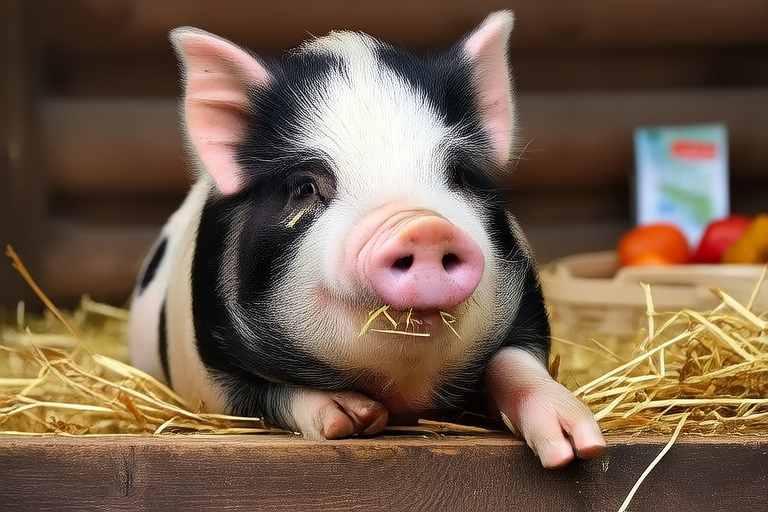Guinea Pig Care: The Beginner’s Essential Guide to Raising a Healthy Pet
Choosing the Right Guinea Pig
Welcome to the wonderful world of guinea pigs! Before you bring your new furry friend home, it’s important to choose the right guinea pig that suits your lifestyle and living space. Start by considering the breed, as different breeds come with unique features and care requirements.
Popular breeds include the American, Abyssinian, and Peruvian guinea pigs. Each has distinct physical traits, like coat length or color patterns. For instance, the American guinea pig has short, smooth fur, while the Peruvian is known for its long, flowing locks. When selecting your pet, look for signs of good health such as clear eyes, clean ears, and a shiny coat. Avoid any animals showing signs of illness, like sneezing, discharge from the nose or eyes, or lethargy.
Age is another factor to consider. Younger guinea pigs are more energetic and easier to train, but they require more attention and care. Older guinea pigs might be calmer and less demanding, making them ideal for busy households or first-time owners. If possible, visit the guinea pig multiple times before adopting to ensure compatibility.
Proper Housing Setup
Creating a comfortable and safe living environment is crucial for your guinea pig’s well-being. A spacious cage with enough room for movement is essential. A minimum size of 7.5 square feet (2×3.5 feet) per guinea pig is recommended, especially if you have more than one. The cage should have solid flooring to prevent injury and should be lined with soft bedding, such as paper-based products or recycled paper pellets, to absorb waste and provide cushioning.
Adequate ventilation is also necessary to keep the air fresh and prevent respiratory issues. Place the cage in a quiet area away from drafts, direct sunlight, and extreme temperatures. Guinea pigs are sensitive to heat, so avoid placing their cage near windows or heaters. Adding tunnels, chew toys, and hideouts can enrich their environment and stimulate mental and physical activity.
Diet and Nutrition Tips
Guinea pigs have specific dietary needs that must be met to maintain optimal health. Their diet should consist of hay, fresh vegetables, and a small amount of pellets designed specifically for guinea pigs. Timothy hay is highly recommended as it aids digestion and keeps teeth healthy. Provide unlimited access to fresh water, either through a sipper bottle or a shallow dish.
Vary the vegetables you offer daily, ensuring they are washed thoroughly and free from pesticides. Leafy greens like romaine lettuce, kale, and spinach are excellent choices. Introduce new foods gradually to monitor for any adverse reactions. Fruits should be given sparingly due to their high sugar content. Vitamins C and D are particularly important, as guinea pigs cannot produce vitamin C on their own. Offer supplements if necessary, but always consult a veterinarian before changing their diet.
Exercise Needs
Regular exercise is vital for keeping your guinea pig fit and happy. In addition to their cage, provide supervised playtime outside of the enclosure. This allows them to explore and stretch their legs. Use a safe, enclosed area, such as a large exercise pen, to prevent accidents. Rotate toys regularly to keep things interesting and encourage physical activity.
Consider setting up ramps or tunnels within the cage to promote climbing and crawling. These activities help maintain muscle tone and prevent obesity. Monitor your guinea pig’s weight regularly and adjust their diet and exercise routine accordingly. Regular interaction with you also contributes to their overall health and happiness.
Grooming Essentials
Grooming is an important aspect of guinea pig care. Long-haired breeds require more frequent brushing to prevent matting and tangling. Use a soft brush to gently comb through their fur, removing loose hair and debris. Short-haired breeds benefit from occasional brushing as well, which helps distribute natural oils throughout the coat.
Trimming nails is another essential grooming task. Overgrown nails can cause discomfort and lead to difficulties walking. Trim them carefully, avoiding the quick, which contains blood vessels and nerves. Consult a professional if you’re unsure about how to trim safely. Bathing is generally unnecessary unless your guinea pig gets very dirty. Wet them only when absolutely necessary, using a gentle shampoo and warm water. Dry them thoroughly afterward to prevent chills.
Common Health Issues
Understanding common health issues can help you recognize problems early and seek timely treatment. Dental issues are prevalent among guinea pigs due to their continuously growing teeth. Signs of dental problems include difficulty eating, drooling, or swollen cheeks. Regular check-ups and providing plenty of hay can help prevent these issues.
Respiratory infections are another concern, often caused by poor ventilation or overcrowding. Symptoms include sneezing, wheezing, and discharge from the nose or eyes. Keep the cage clean and dry, and separate sick guinea pigs from healthy ones to prevent the spread of infection. Parasites, such as mites or lice, can cause itching and hair loss. Treat infestations promptly with appropriate medication prescribed by a veterinarian.
Advice for Socializing and Bonding
Socialization is key to building a strong bond with your guinea pig. Spend time interacting with them each day, offering treats and gentle handling. This helps them become familiar with your presence and builds trust. Guinea pigs are social animals and enjoy companionship, so consider getting two if possible. They thrive in pairs or small groups, which can reduce stress and loneliness.
Handle your guinea pig gently, supporting their body with both hands. Let them get used to being held by offering treats and positive reinforcement. Patience is essential; some guinea pigs may take longer to become comfortable with human interaction. Establishing a routine can also aid in bonding, as they appreciate consistency and predictability.
